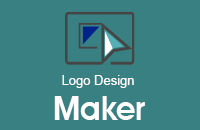Branding yourself: For better or worse?
March 24th, 2009
Many important factors go into the creation of corporate identity. What colors are right for us, Fonts? There are many other questions that arise when one is working with logo designs. One question that tends to be overlooked is whether or not your design will be relevant in 5 or even 10 years. More importantly, once a company has established itself with a specific look, feel and brand, it becomes more and more difficult as time goes by to change it. Some companies have enjoyed success without ever having to change their brand image. Kentucky Fried Chicken has used Colonel Sanders in their logo ever since the company was founded. Aside from some updates on their marketing front; Nike would be another good example of a timeless brand-image. Pepsi took a risk in the mid 90s by completely changing their image and logo but did so with alarming success. However, it could have resulted in commercial suicide. If you'll remember, in the 1980's Coca-Cola changed their brand image to Coke. Pepsi then took over top seat in the market shortly thereafter. Some questions to ask yourself if you are thinking about redesigning your logo:
• Does my current logo have the 3 key elements that make up a high-quality, credible logo design:
• Does it portray your company in a manner which says you are an expert in this field?
• Is it "contemporary" symbolizing a "forward-thinking" look?
• Is the messag you are trying to convey to the consumer clear?
•If all of these questions are answered with a yes, then why change? You company will be at risk of losing clients who are already familiar of with your product. You can, however, clean up your logo or update it with a lot less risk. Another question to consider: Is my brand / tagline universal? When creating a tagline for your company, it is important for you to consider whether or not you are going to eventually go global and if so, to create a tagline that gets your point across when translated in different languages. Some examples of successful companies that did not take this into account are:
• Kentucky Fried Chicken's tagline "finger-lickin' good" translated as "eat your fingers off."
• General Motors introduced the Chevy Nova in South America, and the company was apparently unaware that "no va" means "it won't go."
• In Taiwan, Pepsi introduced its tagline "Come alive with the Pepsi Generation". It translated as "Pepsi will bring your ancestors back from the dead."
Colors are also important as they relate to your brand image: You have your design layout chosen, but not your colors. Some things to keep in mind are whether your color scheme is appropriate for your company. Colors have a way of playing with your subconscious. If you created a logo design for a nursing home or a hospital, it may be a good idea to stay away from reds and bright yellows. Red tends to signify danger, while yellow tends to be a very irritating color. Exceptions are always made; one such is McDonalds (who has both red and yellow in its logo!). Less is MORE!




